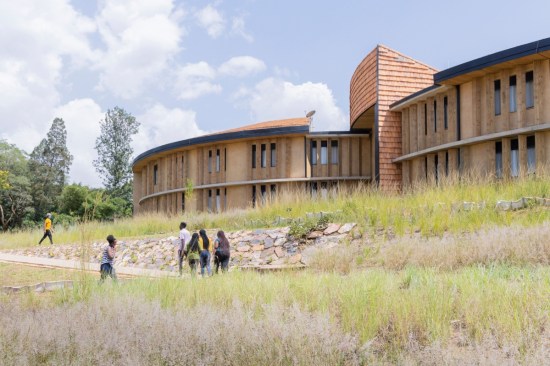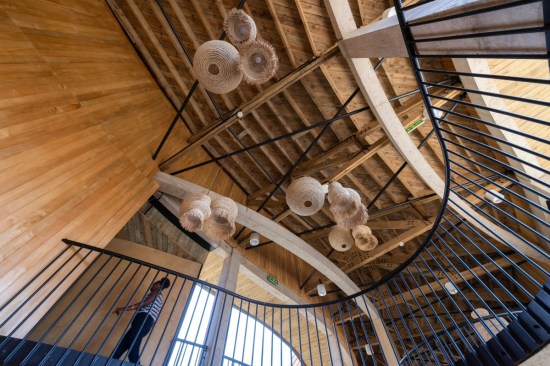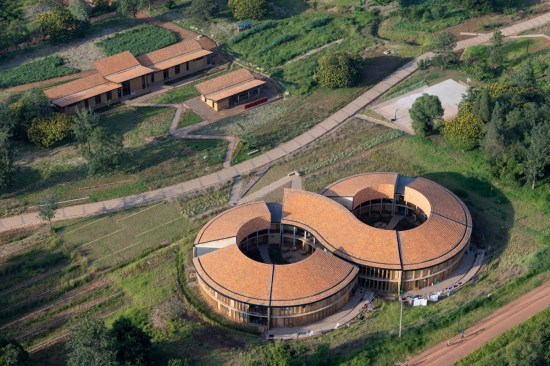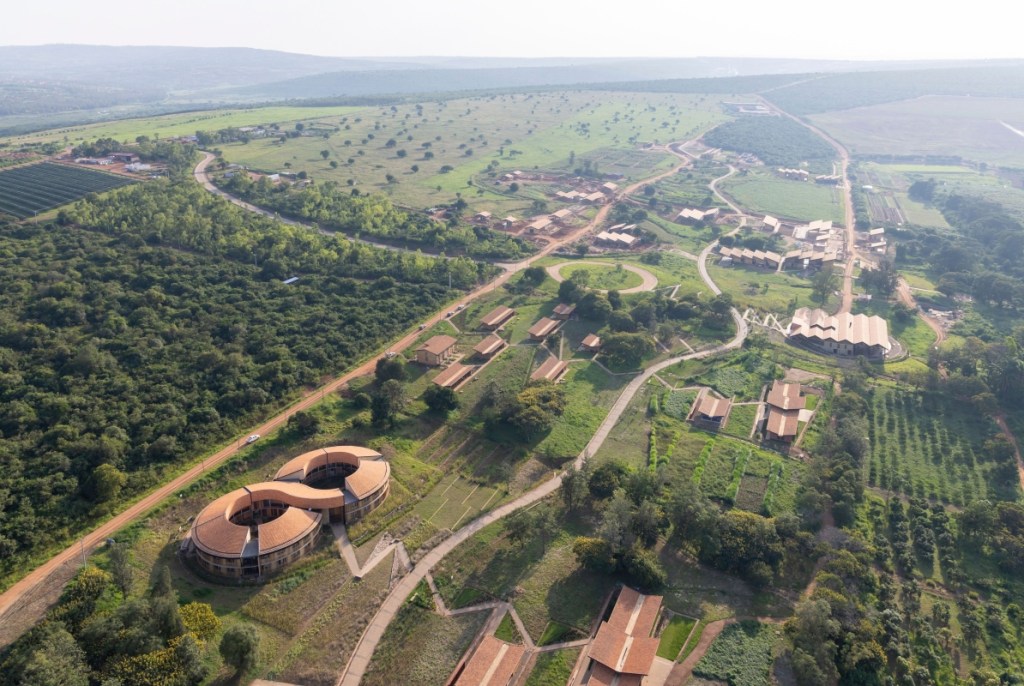The Harvard Graduate School of Design (GSD) has awarded the 15th Veronica Rudge Green Prize in Urban Design to the Rwanda Institute for Conservation Agriculture (RICA) in Bugesera. Designed by MASS Design Group, the campus is a model of ecological innovation, community engagement, and design excellence.
MASS oversaw every aspect of the 1,400-hectare RICA campus—from master planning and architecture to landscape design, engineering, furniture fabrication, and construction—in support of an ambitious mission: The campus will prepare Rwanda’s next generation of agricultural leaders and ensure long-term food security as the country’s population is projected to double by 2050.

Credit: Iwan Baan. Courtesy of MASS
“With this award, the GSD acknowledges not just design excellence but also excellence in the process,” says Joan Busquets, chair of the Green Prize jury. “The RICA project sets a new standard for evaluating innovation in the field of urban design.”
The campus design embodies the “One Health” philosophy, integrating human, animal, and environmental health. The layout incorporates academic buildings, student housing, barns, food processing facilities, water and waste systems, and off-grid renewable energy infrastructure. A central spine unites the campus, organizing social and agricultural spaces into a coherent whole.

Credit: Iwan Baan. Courtesy of MASS
“RICA is a powerful reminder that design can be both—a model of abundance not defined by excess, but by balance—where education, conservation, and community thrive together,” says Alan Ricks, co-executive director of MASS.
Sustainability was central to the project. The buildings, constructed with local materials such as stone and soil, are designed to be net-zero carbon. Ninety percent of materials were sourced within 500 miles, and about 96% were obtained in Rwanda. The team estimates that RICA’s embodied carbon is 58% lower than the global average for institutional projects and could become carbon-positive by 2044.
A 1.5-megawatt solar array powers the campus and its irrigation infrastructure. Wastewater is treated and reused for forage crop irrigation, and animal waste is composted for fertilizer, closing multiple ecological loops. Local job creation was also prioritized, with about 90% of the 1,300-person workforce hired from the Bugesera district.

Credit: Iwan Baan. Courtesy of MASS
The biennial $50,000 prize honors projects that significantly enhance the public realm and improve quality of life through thoughtful urban design. The jury included GSD faculty and international design leaders.
An exhibition about the RICA project will open in October at the Druker Design Gallery at Harvard GSD, with a public lecture and reception scheduled for Nov. 5.
